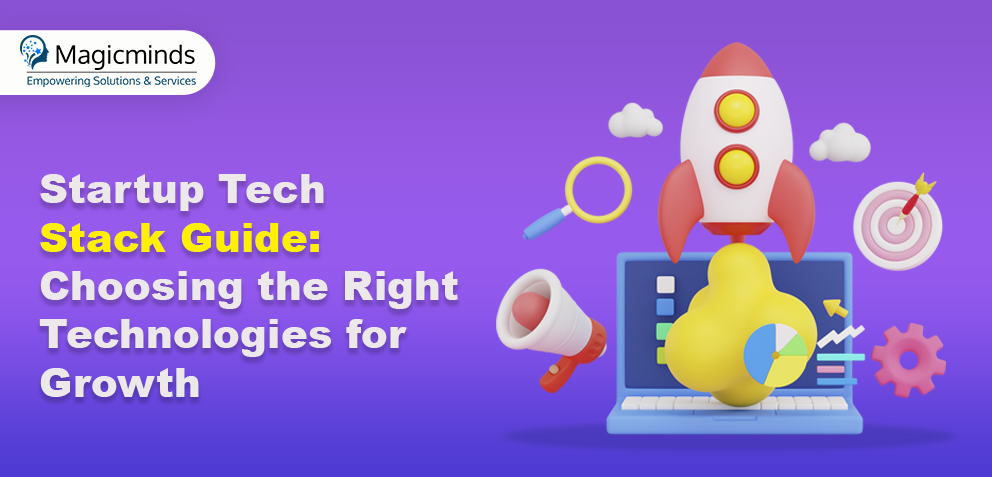Mastering the Software Development Process: Everything You Need to Know

Table Of Contents
 Stay In-the-loop
Stay In-the-loop
Get fresh tech & marketing insights delivered right to your inbox.
Share this Article
Tags
Category
- .Net Developer
- Adtech
- Android App Development
- API
- App Store
- Artificial Intelligence
- Blockchain Development
- Chatbot Development
- CMS Development
- Cybersecurity
- Data Security
- Dedicated Developers
- Digital Marketing
- Ecommerce Development
- Edtech
- Fintech
- Flutter app development
- Full Stack Development
- Healthcare Tech
- Hybrid App Development
- iOS App Development
- IT Project Management
- JavaScript development
- Laravel Development
- Magento Development
- MEAN Stack Developer
- MERN Stack Developer
- Mobile App
- Mobile App Development
- Nodejs Development
- Progressive Web Application
- python development
- QA and testing
- Quality Engineering
- React Native
- SaaS
- SEO
- Shopify Development
- Software Development
- Software Outsourcing
- Staff Augmentation
- UI/UX Development
- Web analytics tools
- Wordpress Development
The software development process is the backbone of every successful project. It helps businesses streamline their operations while meeting deadlines.
This article is the key to understanding the effective software development cycle, from definition to methodologies, and how a software development company ensures your project success.
What Does the Software Development Process Mean?
Specifically, the software development process includes any software app’s creation, test, and launch approach. It certainly follows a set of steps to provide superior software quality, high performance, and increased user experience.
Additionally, this software development process helps custom software development companies in navigating software development challenges beforehand, maintaining the deadlines with high-quality products.
Well, to be honest, we can not stress enough the necessity of a well-organized development process to meet the ever-changing market demands. This enables businesses to stay ahead of the competition while boosting ROI. Whether it’s a small mobile app or a large organization, a systematic and proper software development process is a prerequisite for efficient development.
Related Read: Software Development Outsourcing 101: Complete Roadmap to Success
Stages of the Software Development Process
Coming to the main part, what are the stages of software development? There are 7 stages that software development goes through to ensure flawless execution and user experience. And what are those? Check them out!
1. Requirement Gathering and Analysis
Let’s have a look at the requirements stage:
- Definition: The initial and most crucial stage in the creation of software. A software development company finds and compiles all of the project’s unique needs at this stage.
- Key Questions Addressed: What is the software’s intended use? Identify the end users. What issue will it resolve?
- Involvement: Ensure the project aligns with company goals, clients, stakeholders, and committed developers collaborate closely.
2. Planning and Feasibility Study
Let’s have a look at the planning stage:
- Definition: Analyze the project’s usability aligning with the time, money, and technological requirements.
- Feasibility Factors: Analyze the project’s technical, financial, and operational feasibility.
- Outcome: A clear guide ensures the proper allocation of resources, including the decision to hire dedicated developers.
3. Design
Check out the design stage:
- Definition: At this point, the requirements are converted into a software blueprint.
- Key Elements: Prototypes, data flow diagrams, user interface designs, and software architecture are important components.
- Why It’s Important: It provides a concrete image of how the software will seem and work for both developers and clients.
4. Development
Have a look at the development stage:
- Definition: The stage where actual coding is done is the most crucial.
- Tools and Technologies: Custom software development teams use appropriate programming languages, frameworks, and databases to develop software-based applications (web, mobile, or desktop).
- Collaboration: A coordinated team of professionals, designers, and testers work together to ensure flawless performance.
- Pro Tip: Hire dedicated developers with the most appropriate technology for your project to ensure efficiency and productivity.
5. Testing
Check out the testing phase:
- Definition: Testing ensures that all your software’s features and functionalities are working perfectly as expected without errors.
- Types of Testing: Testing types include performance testing, user acceptance testing (UAT), integration testing, and unit testing.
- Continuous Improvement: Testing feedback loops allows the development team to resolve issues before final release, ensuring quality and functioning.
6. Deployment
Let’s have a look at the deployment stage:
- Definition: After completing all testing phases, the software is released to its intended destination (such as the client’s system or the cloud).
- Deployment Methods: Different software implementation methods can include releasing it in stages, like a beta release, rather than all at once.
- Pro Tip: Engage a trustworthy software development firm that follows performance and security best practices to guarantee a smooth deployment process.
7. Maintenance and Support
Let’s have a look at the post-deployment phase:
- Definition: After implementing the software, it will need continuous maintenance to solve problems, implement new features, and stay current with the latest technologies.
- Why It Matters: Consistent backing is crucial for sustained effectiveness and flexibility.
Ready to Accelerate Your Business Growth with Custom Software?
Experience the power of tailored custom software designed to drive your business forward.
Key Software Development Methodologies
How you approach your software project can greatly affect the result. Below are a few of the top software development methodologies employed by prominent software development companies:
1. Waterfall Methodology
Wondering what the waterfall methodology is? Fret not! Here’s what you need to know!
- Overview: A structured and orderly method in which each stage needs to be finished before moving on to the next stage.
- Best For: Projects with well-defined requirements that are not expected to shift.
- Pros: Simple and convenient to handle.
- Cons: Limited versatility, making it less suitable for projects with evolving requirements.
2. Agile Methodology
You must have heard about this most preferred methodology in the software development cycle but need to gain knowledge of what it actually involves. Well, we can’t overstate enough the necessity of this most embraced methodology. So, let’s talk about that!
- Overview: Agile emphasizes incremental cycles during software development by building in small iterations. Feedback is incorporated into every step of the process.
- Best For: Ideal for projects requiring flexibility and extensive client collaboration.
- Pros: Ability to adjust easily, versatility, and quicker release of usable software.
- Cons: Demands extensive coordination between teams and clients, leading to high resource expenditure.
3. DevOps Methodology
Let’s have a look at the DevOps methodology:
- Overview: DevOps can combine the development and IT operations seamlessly, minimizing the development circle length.
- Best For: Tasks that need quick turnaround and regular revisions.
- Pros: Honestly, continuous integration and continuous delivery (CI/CD) fast pace the efficiency with minimized downtime.
- Cons: A proficient team with knowledge of development and operations is necessary.
4. Lean Development
So, what does lean development include? Have a look:
- Overview: Lean ensures the customer receives maximum value by removing any unnecessary steps in the development process.
- Best For: Startups and small endeavors that prioritize optimizing value within restrictions on resources.
- Pros: Improved efficiencies and reduced resource usage.
- Cons: Not ideal for large, complicated projects with high demands.
Need to Scale Your Team with Dedicated Developers?
Hire Magicminds’ top-notch dedicated developers and build a flawless and superior software product.
Hire Developers Now!Choosing the Right Software Development Company
Partnering with the right software development company is crucial for the success of your project. Here’s why:
- Experience and Expertise: An established company with a successful history in creating customized software can provide invaluable expertise and perspectives for your project.
- Team of Experts: You can hire specialized developers proficient in various fields, from front-end coding to back-end development.
- Flexibility: A suitable partner will adjust to your requirements, whether you prefer Agile, Waterfall, or DevOps approaches.
- Quality Assurance: Top software companies provide comprehensive services from start to finish, including development, thorough testing, deployment, and continual support, ensuring high quality.
Read More: IT Project Management Challenges and How to Address Them
Bring Your Software Idea to Life with Magicminds!
Developing successful and innovative software might appear complicated. However, you can transform your concepts into reality by adopting the correct method and collaborating with the proper ally. At Magicminds, our top-notch and experienced developers are prepared to assist you in creating, launching, and managing top-performing software customized to your specific business requirements.
Are you prepared to begin?
Contact Magicminds today to discuss how our custom software development services can help your business grow.
The software development process is the backbone of every successful project. It helps businesses streamline their operations while meeting deadlines. This article is the key to understanding the effective software development cycle, from definition to methodologies, and how a software development company ensures your project success.
| Table of Contents!
What Does the Software Development Process Mean? Stages of the Software Development Process
Key Software Development Methodologies Choosing the Right Software Development Company Bring Your Software Idea to Life with Magicminds! |
What Does the Software Development Process Mean?
Specifically, the software development process includes any software app’s creation, test, and launch approach. It certainly follows a set of steps to provide superior software quality, high performance, and increased user experience.
Additionally, this software development process helps custom software development companies in navigating software development challenges beforehand, maintaining the deadlines with high-quality products.
Well, to be honest, we can not stress enough the necessity of a well-organized development process to meet the ever-changing market demands. This enables businesses to stay ahead of the competition while boosting ROI. Whether it’s a small mobile app or a large organization, a systematic and proper software development process is a prerequisite for efficient development.
Related Read: Software Development Outsourcing 101: Complete Roadmap to Success
Stages of the Software Development Process
Coming to the main part, what are the stages of software development? There are 7 stages that software development goes through to ensure flawless execution and user experience. And what are those? Check them out!
-
Requirement Gathering and Analysis
Let’s have a look at the requirements stage:
- Definition: The initial and most crucial stage in the creation of software. A software development company finds and compiles all of the project’s unique needs at this stage.
- Key Questions Addressed: What is the software’s intended use? Identify the end users. What issue will it resolve?
- Involvement: Ensure the project aligns with company goals, clients, stakeholders, and committed developers collaborate closely.
-
Planning and Feasibility Study
Let’s have a look at the planning stage:
- Definition: Analyze the project’s usability aligning with the time, money, and technological requirements.
- Feasibility Factors: Analyze the project’s technical, financial, and operational feasibility.
- Outcome: A clear guide ensures the proper allocation of resources, including the decision to hire dedicated developers.
-
Design
Check out the design stage:
- Definition: At this point, the requirements are converted into a software blueprint.
- Key Elements: Prototypes, data flow diagrams, user interface designs, and software architecture are important components.
- Why It’s Important: It provides a concrete image of how the software will seem and work for both developers and clients.
-
Development
Have a look at the development stage:
- Definition: The stage where actual coding is done is the most crucial.
- Tools and Technologies: Custom software development teams use appropriate programming languages, frameworks, and databases to develop software-based applications (web, mobile, or desktop).
- Collaboration: A coordinated team of professionals, designers, and testers work together to ensure flawless performance.
- Pro Tip: Hire dedicated developers with the most appropriate technology for your project to ensure efficiency and productivity.
-
Testing
Check out the testing phase:
- Definition: Testing ensures that all your software’s features and functionalities are working perfectly as expected without errors.
- Types of Testing: Testing types include performance testing, user acceptance testing (UAT), integration testing, and unit testing.
- Continuous Improvement: Testing feedback loops allows the development team to resolve issues before final release, ensuring quality and functioning.
-
Deployment
Let’s have a look at the deployment stage:
- Definition: After completing all testing phases, the software is released to its intended destination (such as the client’s system or the cloud).
- Deployment Methods: Different software implementation methods can include releasing it in stages, like a beta release, rather than all at once.
- Pro Tip: Engage a trustworthy software development firm that follows performance and security best practices to guarantee a smooth deployment process.
-
Maintenance and Support
Let’s have a look at the post-deployment phase:
- Definition: After implementing the software, it will need continuous maintenance to solve problems, implement new features, and stay current with the latest technologies.
- Why It Matters: Consistent backing is crucial for sustained effectiveness and flexibility.
| Ready to Accelerate Your Business Growth with Custom Software?
Experience the power of tailored custom software designed to drive your business forward. |
Key Software Development Methodologies
How you approach your software project can greatly affect the result. Below are a few of the top software development methodologies employed by prominent software development companies:
1. Waterfall Methodology
Wondering what the waterfall methodology is? Fret not! Here’s what you need to know!
- Overview: A structured and orderly method in which each stage needs to be finished before moving on to the next stage.
- Best For: Projects with well-defined requirements that are not expected to shift.
- Pros: Simple and convenient to handle.
- Cons: Limited versatility, making it less suitable for projects with evolving requirements.
2. Agile Methodology
You must have heard about this most preferred methodology in the software development cycle but need to gain knowledge of what it actually involves. Well, we can’t overstate enough the necessity of this most embraced methodology. So, let’s talk about that!
- Overview: Agile emphasizes incremental cycles during software development by building in small iterations. Feedback is incorporated into every step of the process.
- Best For: Ideal for projects requiring flexibility and extensive client collaboration.
- Pros: Ability to adjust easily, versatility, and quicker release of usable software.
- Cons: Demands extensive coordination between teams and clients, leading to high resource expenditure.
3. DevOps Methodology
Let’s have a look at the DevOps methodology:
- Overview: DevOps can combine the development and IT operations seamlessly, minimizing the development circle length.
- Best For: Tasks that need quick turnaround and regular revisions.
- Pros: Honestly, continuous integration and continuous delivery (CI/CD) fast pace the efficiency with minimized downtime.
- Cons: A proficient team with knowledge of development and operations is necessary.
4. Lean Development
So, what does lean development include? Have a look:
- Overview: Lean ensures the customer receives maximum value by removing any unnecessary steps in the development process.
- Best For: Startups and small endeavors that prioritize optimizing value within restrictions on resources.
- Pros: Improved efficiencies and reduced resource usage.
- Cons: Not ideal for large, complicated projects with high demands.
| Need to Scale Your Team with Dedicated Developers?
Hire Magicminds’ top-notch dedicated developers and build a flawless and superior software product. |
Choosing the Right Software Development Company
Partnering with the right software development company is crucial for the success of your project. Here’s why:
- Experience and Expertise: An established company with a successful history in creating customized software can provide invaluable expertise and perspectives for your project.
- Team of Experts: You can hire specialized developers proficient in various fields, from front-end coding to back-end development.
- Flexibility: A suitable partner will adjust to your requirements, whether you prefer Agile, Waterfall, or DevOps approaches.
- Quality Assurance: Top software companies provide comprehensive services from start to finish, including development, thorough testing, deployment, and continual support, ensuring high quality.
Read More: IT Project Management Challenges and How to Address Them
Bring Your Software Idea to Life with Magicminds!
Developing a successful and innovative software might appear complicated. However, you can transform your concepts into reality by adopting the correct method and collaborating with the proper ally. At Magicminds, our top-notch and experienced developers are prepared to assist you in creating, launching, and managing top-performing software customized to your specific business requirements.
Are you prepared to begin?
Contact Magicminds today to discuss how our custom software development services can help your business grow.


